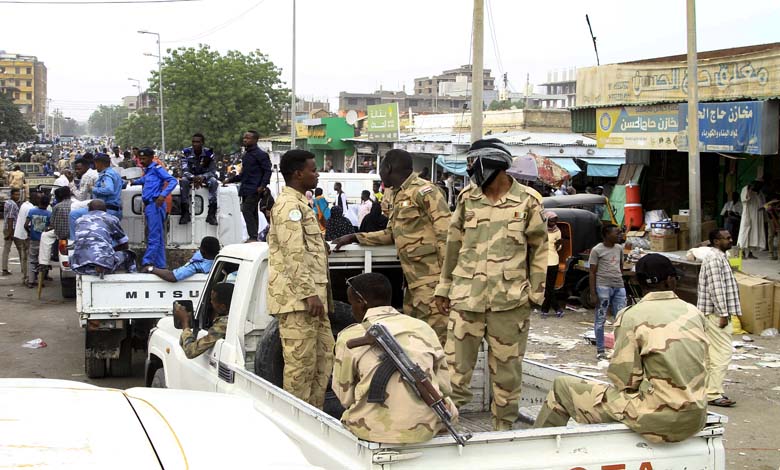Precision Strikes Expose Shadow Alliances: Foreign Experts Killed and Islamists Unveiled in Port Sudan

As the Sudanese crisis deepens on multiple fronts, precise drone strikes have unveiled the extent of regional and international involvement in army and Islamist camps in Port Sudan. Described as the most intense and accurate in months, these strikes targeted accommodations of foreign experts recruited by the army to train its forces and members of Islamist-affiliated battalions, resulting in dozens of fatalities.
-
Sudan Between the Hammer of the Military Islamist Alliance and the Anvil of Democratic Transition
-
The Military and al-Burhan’s Ties to the Islamic Movement: Secret Agreements and New Fronts
Aerial Message: Who Is Behind the Attack?
While the Sudanese army accused the Rapid Support Forces (RSF) of the operation, several military observers and experts questioned this narrative, noting that the technical capabilities and intelligence precision of the operation exceed the RSF’s means. The hypothesis of foreign intervention using Israeli-made drones emerged, especially after reports that the strikes targeted Iranian weapons shipments recently arrived at Port Sudan airport, believed to include drones and advanced weapon systems.
Islamists Fleeing: The End of Concealment?
In the aftermath of the attack, the complete absence of Islamist movement leaders was notable. Local intelligence reports indicate that several left the city hastily, while others disappeared unexpectedly. This behavior raises questions about the group’s role in coordinating with regional parties and exploiting military institutions as channels for arms transfers and logistical support across the east.
-
The Situation in Sudan: The Army and the Islamic Movement in an Unstable Scene
-
The Islamic Movement in Sudan: Political History Military Connections and Renewed Political Fronts
The strike clearly revealed that Port Sudan, which became the “alternative capital” after the deterioration of the situation in Khartoum, was actually a rear base for preparing an Islamist project with military characteristics, supported by Iran and facilitated within the military institution.
Al-Burhan: Between Negligence and Complicity
The stance of General Abdel Fattah al-Burhan raises many questions. While he should have been the first to condemn this significant security breach, al-Burhan chose to remain silent, offering only vague statements through intermediaries. This indifference has fueled speculation about his undeclared ties with certain Islamist factions, especially in light of reports of indirect cooperation with remnants of the previous regime through the military institution.
-
The Political History of the Islamic Movement in Sudan and Its Relationship with the Army: The Case of al-Burhan
-
Humanitarian Crossings in Sudan: A Relief Map Shackled by the Army’s Political Pressure
Iranian Weapons on Sudanese Soil: Who Authorized and When?
According to sources, the targeted shipments included advanced drones and electronic warfare systems, believed to have arrived in Port Sudan via intermediaries linked to Iran. This is not the first time Iranian military equipment has been detected in Sudan, but it is the first time they have been directly targeted, in a message that may be directed not only at the Islamist movement but also at the Sudanese military regime relying on circumstantial alliances that threaten regional security.
Are We Entering a Phase of “Sanctuary Neutralization”?
The new scene suggests that international and regional powers supporting regional stability have begun to eliminate safe havens used by armed Islamist groups in Sudan. With increasing signs of Iranian influence in the east of the country, silence is no longer an option, either locally or internationally. The strikes may be just the beginning of a new phase titled: “No Immunity for Those Attempting to Recycle Political Islam Under Military Guise.”
-
Signs of Discord Shake Sudan’s Army and Its Allies… Is the Alliance Falling Apart?
-
Escalation of Tensions Between Sudanese Army Leaders and Islamist Militias: What Are the Causes?
The East Is Not Immune to the Storm
What happened in Port Sudan is not merely a tactical military operation but a strategic shift that could redefine the contours of confrontation in Sudan. When a temporary capital becomes a platform for recycling Islamist alliances, an external response becomes predictable. As for the official silence, it may not be innocent but rather a sign of the fragility of a project attempting to rise from the ruins of a state resisting collapse.












